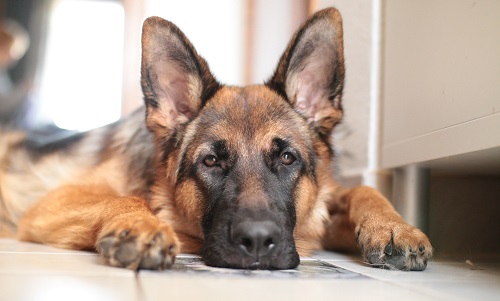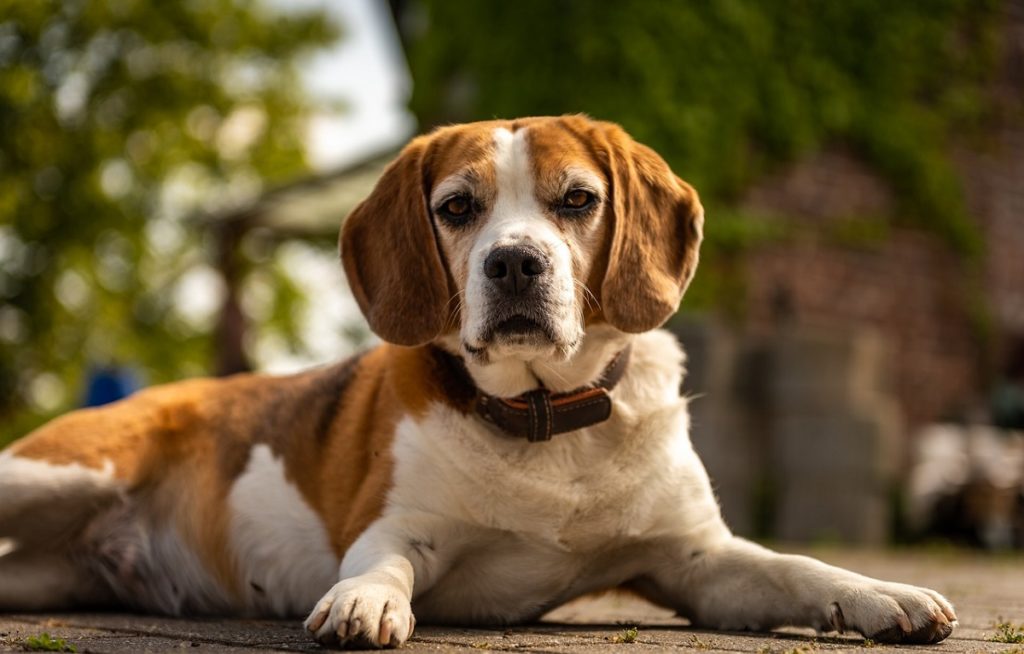The most common underlying cause of chronic vomiting and diarrhea in dogs is canine irritable bowel syndrome. Just like with humans, it can be extremely uncomfortable for your pup, and it’s not something that is great for his mental health either. For a dog living with IBD, it puts a lot of responsibility on the owner, but that’s okay because we’ll do just about anything for our furry little friends. And in the case, there are medical solutions and home remedies that help control the condition. It starts with knowing what IBD in dogs is, and what to feed a dog with IBD.
What is IBD in Dogs?
IBD is a condition characterized by an inflammation in dogs occuring in the intestinal wall at a cellular level. The gastrointestinal tract often becomes thickened, making it tough for dogs to absorb nutrients. When the intestines are inflamed, the digestive process is derailed causing food and waste to pass through the body much quicker than normal.
What Causes IBD in Dogs?
 The canine medical community has not been able to determine exactly what causes IBD, in fact, it’s actually just a catch-all term to describe all kinds of gastrointestinal diseases that present with inflammatory intestinal cells. Although, it is likely believed that the gastrointestinal tract is just sensitive to certain foods, toxins, parasites, and bacteria.
The canine medical community has not been able to determine exactly what causes IBD, in fact, it’s actually just a catch-all term to describe all kinds of gastrointestinal diseases that present with inflammatory intestinal cells. Although, it is likely believed that the gastrointestinal tract is just sensitive to certain foods, toxins, parasites, and bacteria.
Unfortunately, you cannot cure IBD, however, the prognosis for a long and happy life is pretty good, minus a few trips to the dry cleaners for you. Also, do not overlook the discomfort and anxiety that having little bowel control can cause for your dog. That’s why it’s important to do everything you can to minimize and manage his condition.
Medical Solutions for IBD
If your dog has a particularly severe case of IBD, the most common treatment is immunosuppression through a course of steroids. You might be wondering why you would want to suppress the immune system. When something is inflamed it’s a sign that the body’s cells are working overtime to try and fight it. If the cells in the immune system are not operating at a happy equilibrium, it leads to problems. Again, this course of treatment is only recommended for dogs with severe IBD.
What To Feed A Dog With Inflammatory Bowel Disease
For milder cases of IBD, vets will usually recommend a more natural approach to treatment, and it all starts with some dietary adjustments. Because IBD is the result of a sensitivity to something, the first step is to identify the culprit and eliminate that from the diet. Sometimes your vet will have you feed your dog isolated foods and have you monitor his reaction, in order to determine what’s causing diarrhea or vomiting.
Many dogs react negatively to saturated fat, by-products, and preservatives. All of which can be found in big supermarket brands of dog food. Try and avoid these brands, and instead ask your vet for a recommendation.
Supplements, Guidelines, and Foods

- Try to avoid feeding your pup two big meals a day. Just like with humans, big meals can be tough on the digestive system, and you’re not really maximizing proper nutritional intake — spread out feedings to 3-4 smaller meals a day.
- Omega-3 Fatty Acids – These are the building blocks of healthy fats. Feed your dog omega-3s from fish oil and it will provide him with the anti-inflammatory effects that he needs to settle his intestines.
- Probiotics – This is the good kind of bacteria that dogs and humans alike need to regulate a healthy belly. There are probiotics made specifically for dogs that come as chews, food, or powers that you can mix into his kibble. It will help find the right balance between good and bad bacteria in your pup’s gastrointestinal tract.
- Raw diets can be a good solution, however, it doesn’t work for all cases of IBD, and sometimes it can even have an opposite effect. Consult your vet to determine if this is an appropriate course of action.
- High-fiber diets can be helpful, but usually only in controlled doses. Like raw diets, it varies from case to case, so consult your vet.
- Keep diarrhea relief medicine around the house. This can help reduce the symptoms of IBD until the flare up calms down.
- Whatever changes you make to your furry friend’s diet, be sure to, take it slow. His digestive system is already sensitive, so introducing new substances can sometimes be a shock to the system. You can stagger new supplements and foods by giving it to him every 2 to 3 days at first, and then once he’s comfortable, move it up to every day.
IBD is not usually a huge cause for concern, as it’s not immediately life-threatening and although it’s not curable, your dog can still live a long and happy life. As an owner, it’s important to familiarize yourself with the condition so you can provide your pup with the best quality of care. When taking things into your own hands, the best treatment is a well balanced, premium diet. Be sure to always consult your vet before making any major changes.




